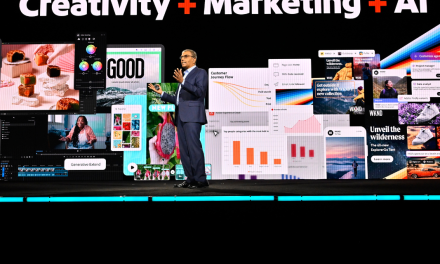The whole market research process is slow, tedious and expensive. But we are on the brink of change, which is already in motion.
For any executive who has conducted consumer research, they might be too familiar with a bulky excel sheet that makes its way into their inbox. Months or weeks spent in planning and executing a research, segway into a much shorter period of data analysis and insight study, which certainly is a part of the process, where more time should be spent.
Today, online quantitative research is the fastest growing sector within the US$70+ billion global market research industry. And yet, little has changed in the past decade in terms of how online research providers recruit, engage and manage their audiences. In fact, across the market research supply chain, panelists (i.e. consumers who participate in online surveys) are often the most abused, as they’re made to endure lengthy (25+ minute) surveys with poor user experience and mediocre rewards. Ignoring user experience can result in poor data quality due to the respondents’ abandoning, randomizing or speeding through surveys.
The pandemic induced shifts
As the COVID-19 pandemic continues to shape virtual-first life, research is pivoting at a quicker pace. It has pushed many research buyers to rethink the ways they invest in market research solutions, as well as which use-cases they are applying market research to. For example, purely qualitative or multimodal studies became almost impossible in the early days of the pandemic, and so we at Milieu saw a surge in the more traditional buyers embracing online methods. We also saw a decrease in some of the heavier and more expensive use-cases, such as hefty brand trackers and segmentation studies, which were replaced by a long-tail of bite-sized but fast turnaround behavioural studies.
The pandemic brought about a rapid shift in consumer behaviour and attitudes. As a result, many businesses realized they needed to collect new data to understand these shifts and how they might be affecting customer purchase behaviours.
Why accessibility of the market research industry is to its benefit
For far too long, buying market research solutions has been a tedious and expensive endeavor, accessible only to companies with hefty budgets or those with the means to hire data or research talent. This model has disproportionately benefited large corporations, making survival for smaller businesses and organizations an uphill battle. And in a post Covid world, it is imperative to make market research solutions more accessible to level the playing field. Anecdotally, I saw a lot of small businesses close down throughout the pandemic. While some of those may have been based on models that simply couldn’t survive in a post-Covid world, I believe that with the right data, some of those businesses may have been able to make decisions sooner to help them find ways to survive. Be it through leaner marketing, new revenue streams or finding ways to pivot.
The ‘professional panelist’ problem in the industry
The issue of professional panelists is a very serious one that I often equate to that of ad fraud in the online advertising industry. For those who aren’t familiar, professional panelists are respondents who sign up to multiple survey-taking communities and power through as many surveys as they can without paying attention to the responses they provide. At worst, some professional panelists even create automations to game survey platforms at scale. Overall, the approach to how an online research provider tackles issues of fraud and professional panelists is a question every research buyer should ask a new vendor.
Gamification to enhance survey experiences
When used in the right way, gamification can help enhance the experience of taking surveys by making it more fun, engaging and sometimes even educational.
Gamification is simply a tool to use to make the experience of sharing opinions more rewarding and sticky. But it’s important to remember that gamification needs to build on the core experience of survey taking, not distract from it.
DIY research solutions are not exactly new, but they are now beginning to pick up steam. I think this has been driven by improvements in data literacy in recent years, as we’re starting to see a decentralization of data skills across the organization for some businesses. So going forward, I think we’ll see strong traction with DIY in the coming years, especially since tech is playing a bigger role in the market research industry.


















